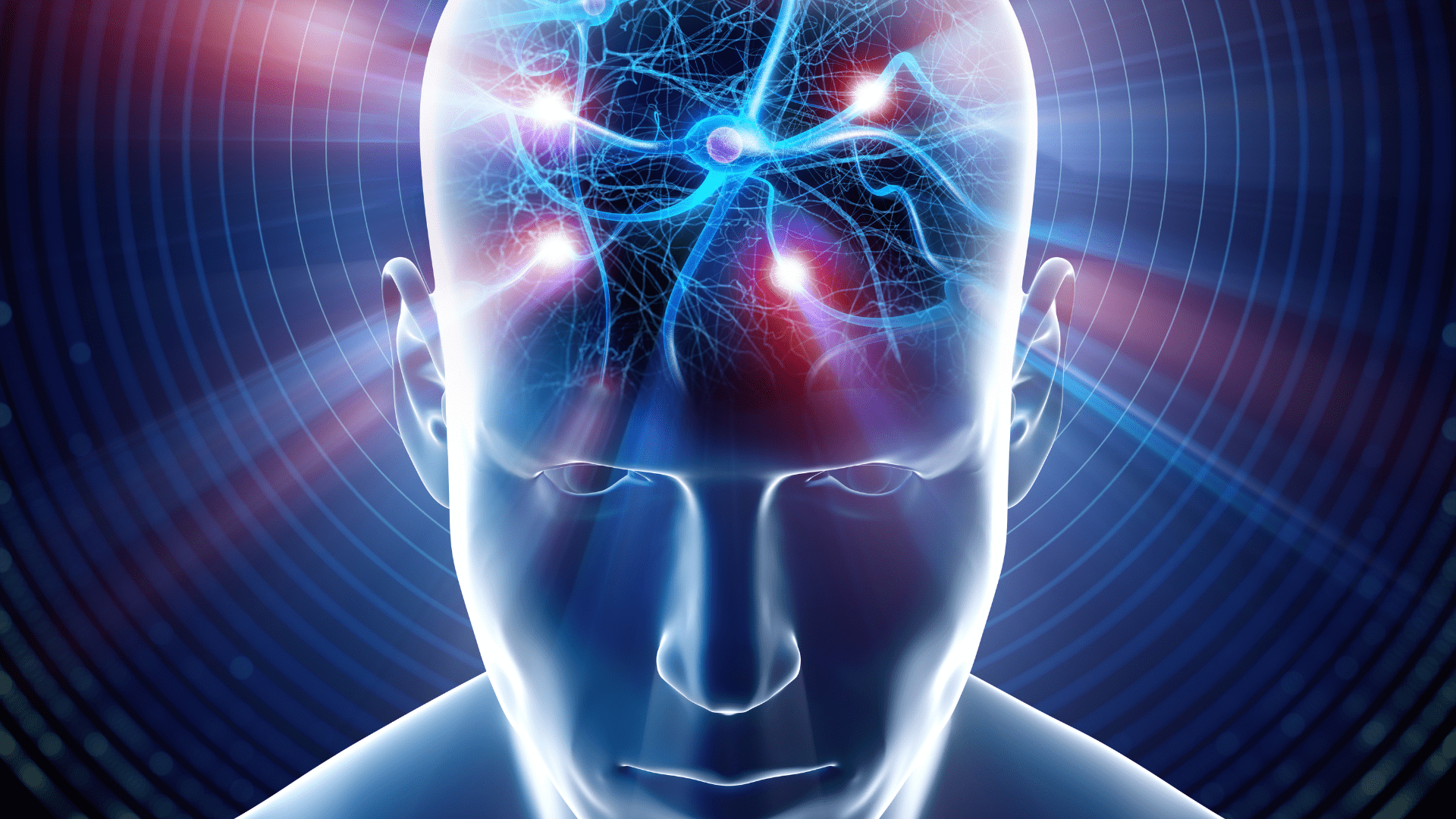Embark on an enlightening journey into the realm of neurotransmitters, the brain’s dynamic chemical messengers. These microscopic powerhouses are pivotal in shaping our cognitive abilities, emotional states, and behaviors. This exploration delves deep into the roles of various neurotransmitters, unraveling how they influence everything from our moment-to-moment mood swings to our long-term mental acuity.
We’ll simplify the complex science of neurotransmitters, making it engaging and accessible. Understanding these neural communicators is essential for anyone looking to enhance focus, decision-making, and emotional resilience. Join us as we uncover the seven key strategies to amplify cognitive performance through the intricate world of neurotransmitters, offering insights that resonate in both personal and professional spheres.
1. Decoding Neurotransmitters: The Brain’s Chemical Language
Neurotransmitters, often hailed as the brain’s chemical language, are integral to our understanding of neuroscience. These chemical messengers are not just about transmitting signals; they play a crucial role in the orchestration of our mental processes. To grasp their significance, imagine the brain as a complex network where neurotransmitters serve as the crucial links enabling communication.
The brain houses a myriad of neurotransmitters, each with specific roles and functions. This intricate system is where thoughts, emotions, and decisions take shape. Neuroplasticity, the brain’s ability to rewire and adapt, is deeply influenced by these chemical messengers. As we delve deeper, we’ll explore how neurotransmitters are not static entities but dynamic players constantly shaping and reshaping neural pathways.
Understanding neurotransmitters from this neuroscientific perspective opens up a world of possibilities. It’s not just about chemistry; it’s about understanding the language of the brain that influences everything from our daily mood to our long-term cognitive health.
2. The Major Types of Neurotransmitters: Categories & Functions
Neurotransmitters come in various forms, each playing a distinct role in our brain’s functioning. Broadly, they can be categorized into four major types:
- Amino Acids: These neurotransmitters, like glutamate and GABA, are fundamental in fast-acting neural communications. Glutamate, for instance, is critical for learning and memory, while GABA is known for its calming effects.
- Monoamines: Including dopamine, serotonin, and norepinephrine, these neurotransmitters are vital in regulating mood, arousal, and emotional responses. Dopamine is often associated with pleasure and reward, while serotonin influences mood and social behavior.
- Peptides: These neurotransmitters, such as substance P and endorphins, play roles in pain perception and natural pain relief.
- Others: This category includes unique neurotransmitters like acetylcholine, involved in muscle activation and memory, and nitric oxide, which plays a role in neural plasticity.
Each of these neurotransmitters contributes to the complex tapestry of neural interactions. By understanding their functions, we can appreciate how the brain’s communication system impacts our cognitive and emotional well-being.
3. The Symphony of Neurotransmission: How Neurotransmitters are Released

The release of neurotransmitters is a finely tuned symphony occurring within milliseconds. It starts in the neuron’s axon terminal. When an electrical signal reaches the terminal, it triggers tiny sacs called synaptic vesicles to merge with the neuron’s membrane. This fusion releases neurotransmitters into the synaptic cleft, the gap between neurons.
Once in the cleft, neurotransmitters bind to specific receptors on the neighboring neuron. This binding can activate or inhibit the neuron, influencing its electrical state. The entire process is a cornerstone of neural communication, impacting everything from our reflexes to our thoughts.
Neuroplasticity, the brain’s ability to adapt and change, is intimately linked to this process. Neurotransmitters play a role in strengthening or weakening synaptic connections, essentially rewiring our brain’s pathways based on our experiences and learning.
This dynamic nature of neurotransmitter release and reception underscores the fluidity of our cognitive and emotional landscapes. As we navigate through life, our brain’s neural pathways are continually molded by these chemical interactions, shaping our perceptions, actions, and reactions.
4. Neurotransmitters and Cognitive Performance: A Crucial Connection
The link between neurotransmitters and cognitive performance is profound. These chemicals are not just passive carriers of signals; they actively shape how we think, learn, and remember. For instance, dopamine is not only associated with pleasure but also plays a crucial role in motivation and reward-driven learning. Serotonin, on the other hand, impacts mood and social behavior, which can influence cognitive processes like decision-making and problem-solving.
Moreover, the balance of excitatory and inhibitory neurotransmitters like glutamate and GABA is essential for maintaining cognitive functions. An imbalance can lead to cognitive challenges, highlighting the importance of a well-regulated neurotransmitter system for optimal brain performance.
In understanding the link between neurotransmitters and cognitive performance, it’s also important to consider their role in neurogenesis, the process of new neuron formation in the brain. To delve deeper into how neurotransmitters influence neurogenesis and contribute to brain health and function, explore our detailed article Neurogenesis: 7 Proven Secrets to Unlocking Brain Potential.
5. Receptors and Neurotransmitters: A Match Made in the Brain
The relationship between neurotransmitters and their receptors is akin to a lock and key mechanism – a perfect fit that triggers specific reactions within the brain. Neurotransmitters bind to receptors on the neuron’s surface, a crucial step in transmitting signals. This binding can either stimulate or inhibit the neuron’s activity, influencing everything from muscle movements to emotional responses.

This interaction is also central to learning and memory. Long-term potentiation, a process where synaptic connections strengthen over time, is largely dependent on neurotransmitter-receptor interactions. This process is a key component of neuroplasticity, allowing our brains to adapt and learn from new experiences.
By understanding the nuances of this interaction, we can appreciate the sophisticated communication system of our brain and its impact on our daily lives. This intricate dance between neurotransmitters and receptors is not just about neural signaling; it’s about the very essence of our cognitive and emotional experiences.
6. Balancing Act: Managing Neurotransmitter Imbalance
Neurotransmitter imbalances can significantly impact mental health and cognitive function. Factors like stress, poor diet, and lack of sleep can disrupt the delicate balance of these chemicals, leading to issues like anxiety, depression, and cognitive impairments.
Understanding the causes of these imbalances is key to maintaining brain health. For instance, a deficit in serotonin can affect mood, while an excess of glutamate may lead to overstimulation of neurons. Addressing lifestyle factors and ensuring a nutrient-rich diet can help in maintaining a healthy balance of neurotransmitters.
This balance is not just about avoiding negative outcomes; it’s about optimizing brain function for better cognitive health and emotional well-being. Maintaining a balance of neurotransmitters is crucial for emotional and cognitive health. Imbalances can lead to issues like emotional dysregulation, affecting our ability to process and respond to emotions effectively. To learn strategies for managing neurotransmitter imbalances and improving emotional regulation, read our in-depth article on Emotional Dysregulation Conquered with 6 Proven Strategies.
7. Harnessing Neurotransmitter Power: Enhancing Cognitive Performance
Finally, we delve into practical strategies to enhance cognitive performance by optimizing neurotransmitter function. Simple yet effective approaches include:
- Regular Physical Activity: Exercise boosts neurotransmitter levels, particularly serotonin and dopamine, enhancing mood and cognitive clarity.
- Balanced Nutrition: A diet rich in omega-3 fatty acids, antioxidants, and vitamins can support healthy neurotransmitter functions.
- Adequate Sleep: Quality sleep is crucial for the regulation of neurotransmitters, impacting memory, learning, and emotional well-being.
- Stress Management: Techniques like deep breathing and yoga can help regulate stress hormones and maintain neurotransmitter balance.
By incorporating these practices into our daily routines, we can harness the power of our brain’s chemical messengers to unlock our full cognitive potential.
Conclusion
In conclusion, understanding and managing neurotransmitters is not just a topic of neuroscientific interest; it’s a key to unlocking our cognitive and emotional potential. From the types and functions of neurotransmitters to their role in cognitive performance and balance, we’ve explored various facets of these vital brain chemicals. By embracing strategies that enhance neurotransmitter function, we can improve our mental agility, emotional resilience, and overall quality of life. Remember, the power to optimize our brain’s performance lies in understanding and nurturing these microscopic yet mighty messengers of the mind.
#neurotransmitters #cognitiveperformance #brainchemistry #neuroplasticity #neuralcommunication #serotonin #dopamine #neurotransmitterimbalance #mentalhealth #cognitivehealth #brainfunction #neuroscienceresearch #mentalwellness #brainhealth #neurotransmitterfunction #neurotransmittertypes #cognitiveenhancement #neurobiology #mentalclarity #brainoptimization






